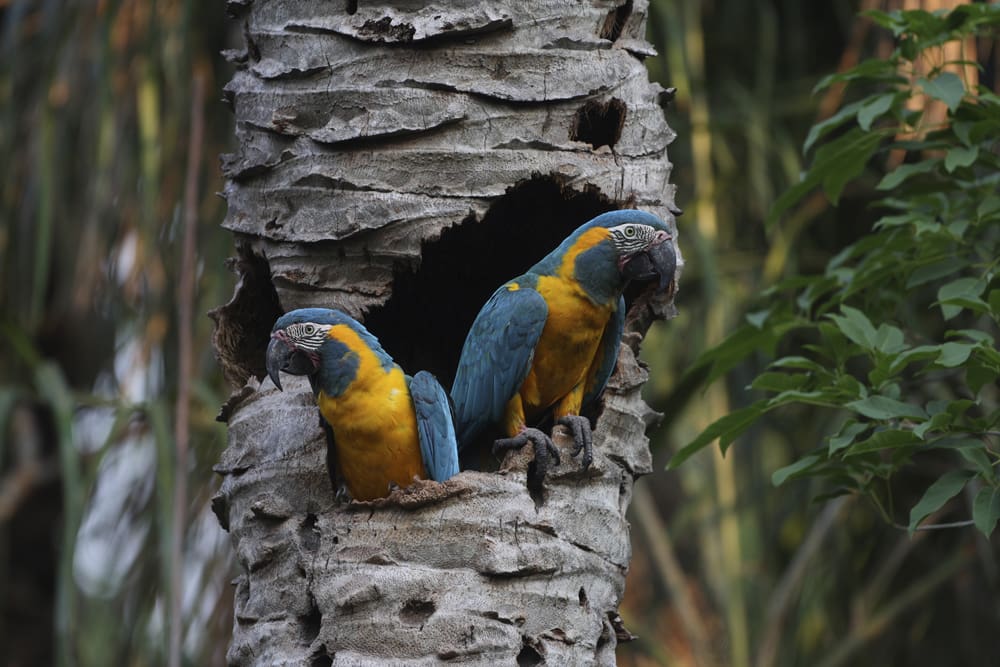Blue-throated Macaws: Breeding Support
Historic deforestation and poaching have caused the loss of many Blue-throated Macaw (Ara glaucogularis) nest sites, greatly curbing the birds’ ability to breed. Nests that remain are susceptible to destruction by predators, drought and brush fires.
Tackling these issues involves multiple avenues of action, which the WPT is addressing with in-country partner Fundación CLB. Adding nest boxes and protecting natural cavities from brushfires, heavy rain, trappers, predation and nest competition from various species help to increase reproductive success. Protecting chicks in the nest includes providing one-to-one care for those that fail to thrive. Local communities where the macaws are found can benefit from employment to carry out these duties in Protected Areas. Once chicks have left the nest, the conservation team and trained municipal employees carry out post-fledging tracking to understand their movements and behaviour.
Beginning in October 2022, work began to install 50 nest boxes in new areas and known macaw sites known to have macaws for a total of 96 boxes available for birds to raise chicks. Through the end of 2022 onwards, the CLB team actively monitors the nest boxes in the Gran Mojos Protected Area.
Status: IUCN Critically Endangered / CITES Appendix I
Population: 312-455 individuals, stable.
Threats: These macaws are at risk from predation, parasitism and disease of adults and chicks, and hunting for feathers and meat. There is a growing threat from Africanised bees. Trapping historically caused a near-extinction.
Range: Occurs only in Llanos de Mojos in NC Bolivia, concentrated east of the upper Río Mamoré, Beni. A smaller population exists in the Municipal Protected Area of the Great Tectonic Lakes of Exaltación.
Natural history: This macaw ranges in a small area in the Beni department in NC Bolivia in flooded areas such as savannas, palm groves and tropical forest in wet lowlands up to 300 m (984 ft). Its diet includes fruit pulp and liquids of Motacú Attalea and Acrocomia palms. It will roost with other parrots, such as Blue-and-yellow and Red-and-green Macaws. Breeding is August- December; nest is in a tree cavity.

